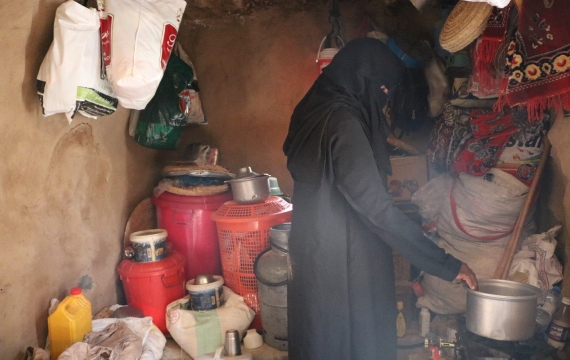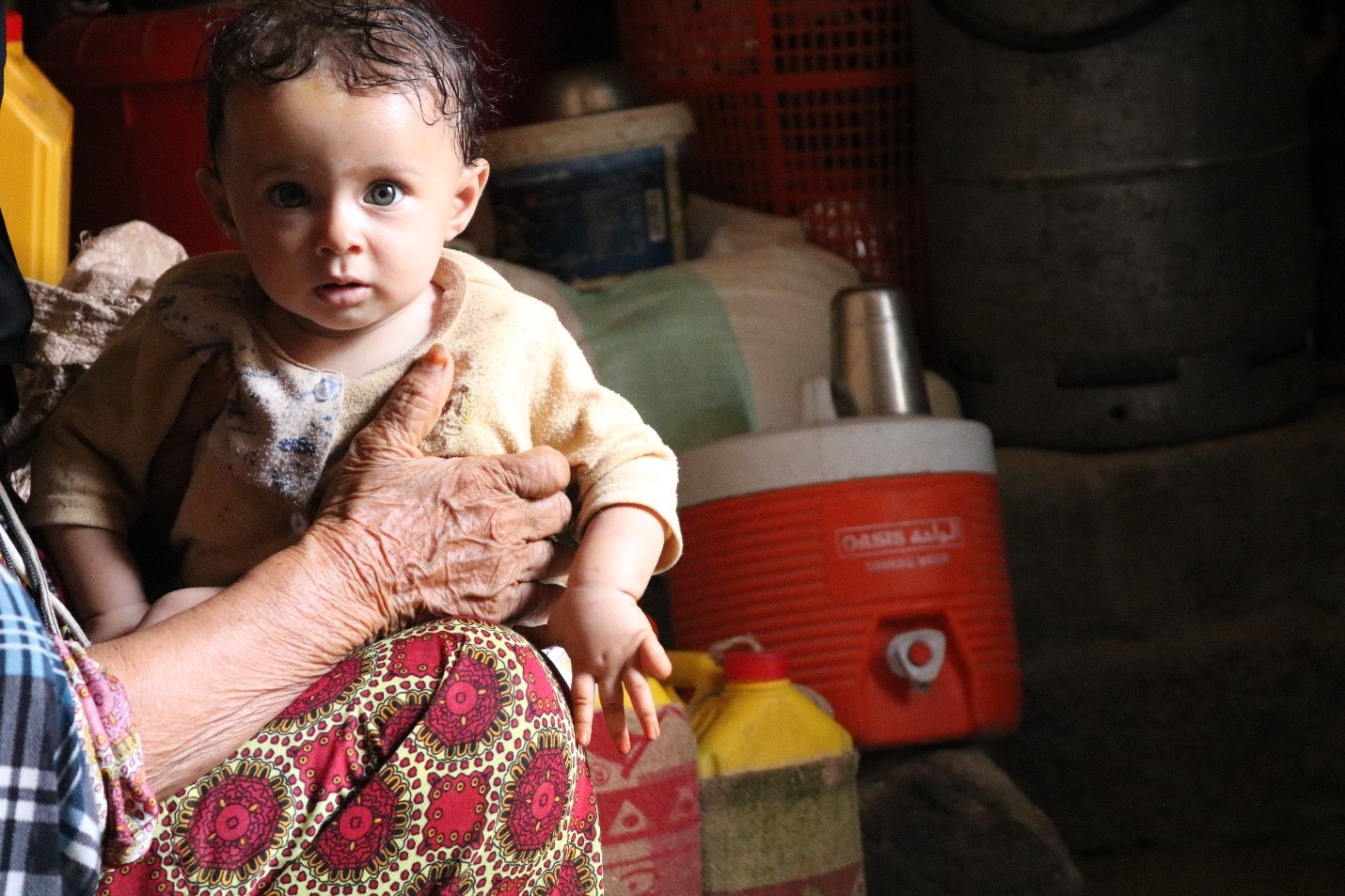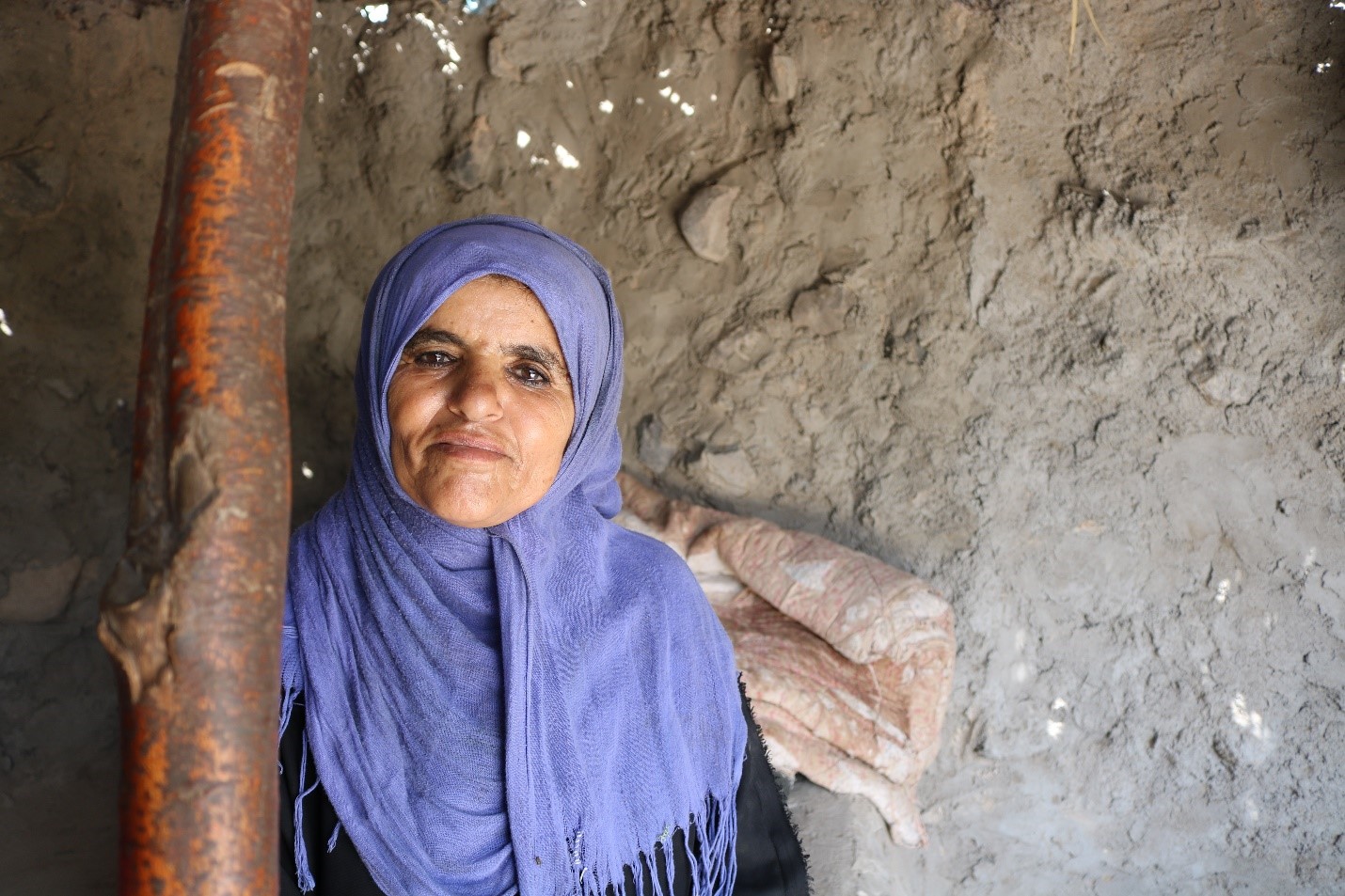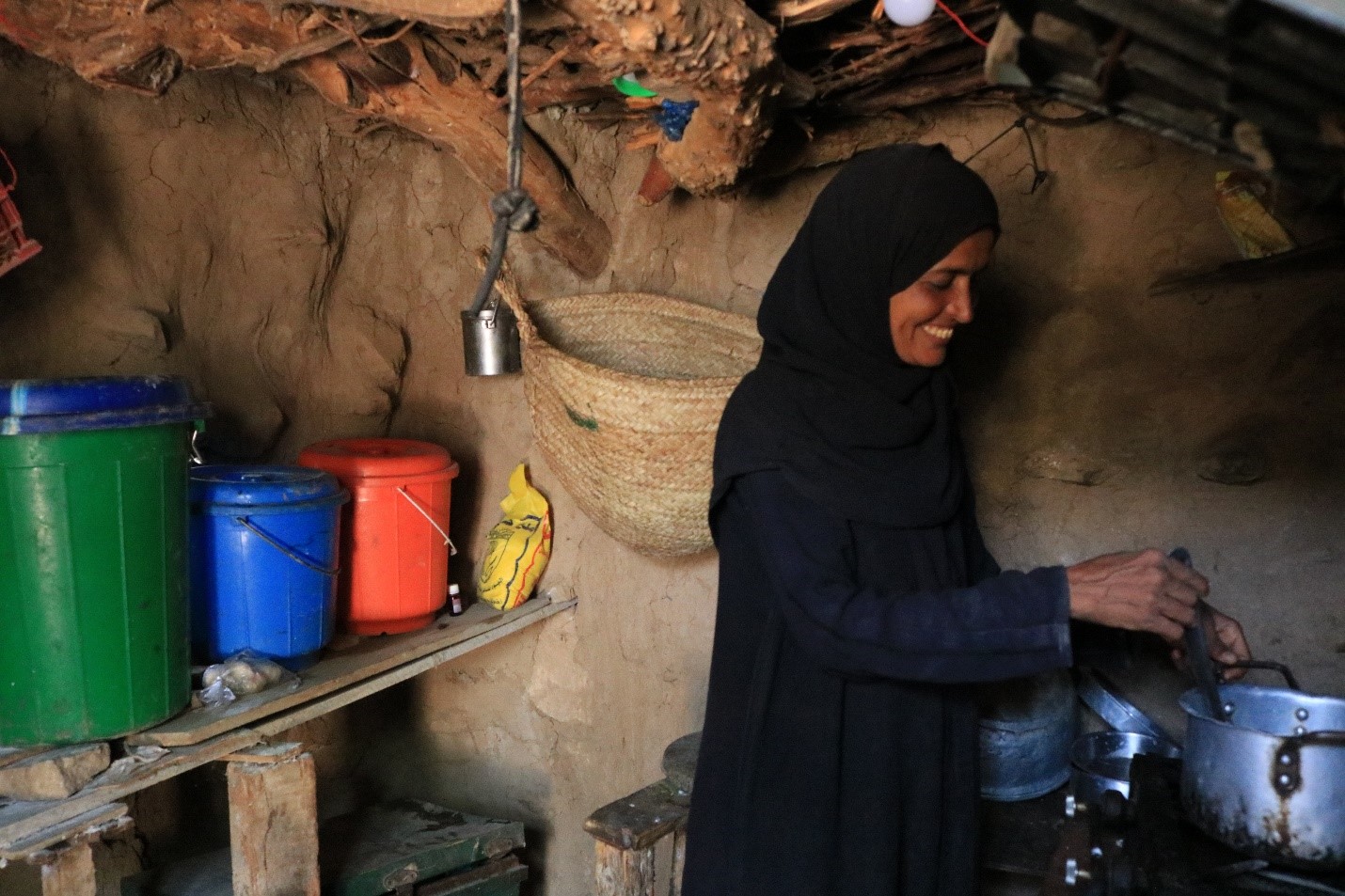Jamilah is a widowed mother of four children – three daughters and a son – from Taizz, a governorate in southwestern Yemen. Jamilah’s husband died thirteen years ago. She ended up being the sole breadwinner for her family. She works as a farmer for eight hours daily so she can provide food for her family. “We eat two meals a day,” she says. “And most of our meals consist of bread with water only.”
In Al Wazi’iyah district of Taizz, Jamilah lives with her children and her granddaughter in a single room that lacks the most basic resources a family needs. Due to the lack of an in-home latrine, Jamilah and her children had to relieve themselves in the open. “It is very embarrassing to defecate in the open during the daytime,” says Jamilah. “Women have to resist their need of urine until night to relieve themselves in the dark.”



